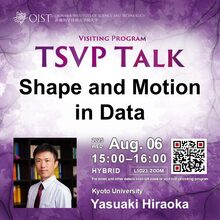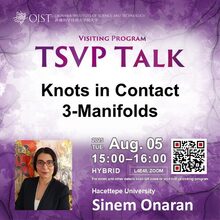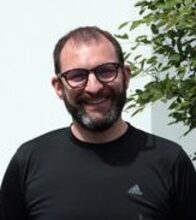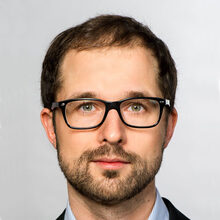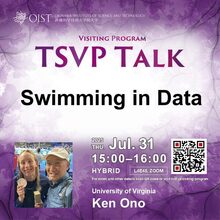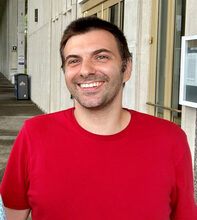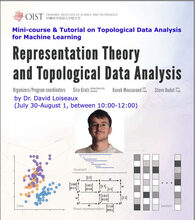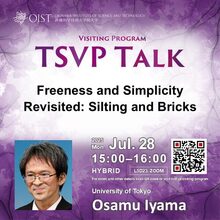Past Events
TSVP Talk: "Shape and Motion in Data" by Yasuaki Hiraoka
2025-08-06TSVP Talk
Language: English (no interpretation).
Target audience: General audience / everyone at OIST and beyond.
Freely accessible to all OIST members and guests without registration (also via Zoom).
TSVP Talk: "Knots in Contact 3-Manifolds" by Sinem Onaran
2025-08-05TSVP Talk
Language: English (no interpretation).
Target audience: General audience / everyone at OIST and beyond.
Freely accessible to all OIST members and guests without registration (also via Zoom).
Expository Talk by Prof. Sergio Estrada (An overview of flat covers and their application to Multiparameter Persistence Theory)
2025-08-04Expository Talk by Prof. Sergio Estrada (Universidad de Murcia, Spain), as part of the Thematic Program TDA PARTI: Topological Data Analysis, Persistence And Representation Theory Intertwined.
Title: Density-Sensitive bifiltrations in TDA
Time: 10:30-11:30, August 4, 2025
Location: OIST, Lab 5, Floor D, Room L5D23
Zoom Link: Will be posted closer to the event!
Expository Talk by Prof. Ulrich Bauer (Geometric complexes and topological persistence: a panoramic view)
2025-08-01Expository Talk by Prof. Ulrich Bauer (Technical University of Munich, Germany), as part of the Thematic Program TDA PARTI: Topological Data Analysis, Persistence And Representation Theory Intertwined.
Title: Geometric complexes and topological persistence: a panoramic view
Time: 14:00-15:30, August 1, 2025
Location: OIST, Lab 5, Floor D, Room L5D23
Zoom Link: Will be posted closer to the event!
TSVP Talk: "Swimming in Data" by Ken Ono
2025-07-31TSVP Talk
Language: English (no interpretation).
Target audience: General audience / everyone at OIST and beyond.
Freely accessible to all OIST members and guests without registration (also via Zoom).
Expository Talk by Prof. Michael Lesnick (Density-Sensitive bifiltrations in TDA)
2025-07-30Expository Talk by Prof. Michael Lesnick (University of Albany-SUNY, USA), as part of the Thematic Program TDA PARTI: Topological Data Analysis, Persistence And Representation Theory Intertwined.
Title: Density-Sensitive bifiltrations in TDA
Time: 14:00-15:30, July 30, 2025
Location: OIST, Lab 5, Floor D, Room L5D23
Zoom Link: Will be posted closer to the event!
Mini-course & Tutorial on Topological Data Analysis for Machine Learning (by Dr. David Loiseaux)
2025-07-30 to 2025-08-01This introductory mini-course & tutorial is offered by an expert in Topological Data Analysis & Machine Learning, as part of the thematic program TDA PARTI: Topological Data Analysis, Persistence And Representation Theory Intertwined (TP25TD).
- Topological Data Analysis for Machine Learning (by Dr. David Loiseaux)
The lectures & tutorials for the minicourse will be between 10:00-12:00, on Wednesday (July 30), Thursday (July 31), and Friday (August 1).
TSVP Talk: "Freeness and Simplicity Revisited: Silting and Bricks" by Osamu Iyama
2025-07-28TSVP Talk
Language: English (no interpretation).
Target audience: General audience / everyone at OIST and beyond.
Freely accessible to all OIST members and guests without registration (also via Zoom).
Open Call for Pre-Proposals for Thematic Programs FY2027
2025-07-23 to 2025-09-15Open Call for Thematic Programs in FY2027
Open Call for Visiting Scholars in FY2026
2025-07-23 to 2025-09-15Open Call for Visiting Scholars in FY2025




